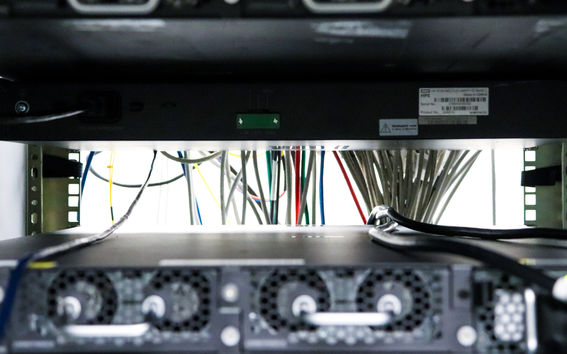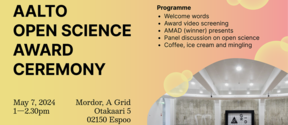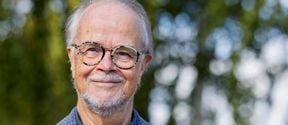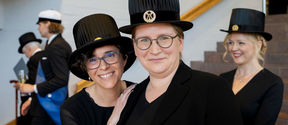5G radio permit for Otaniemi

Traficom has granted the Aalto University Department of Communications and Networking a radio permit for 5G research, product development and teaching. The frequency range covers a full 60 MHz band, from 3640 to 3700 MHz. With the help of this three-year frequency permit, it will be possible to do experimental research at Otaniemi in a genuine 5G testing environment. The test network’s NB-IoT base station will be installed for the 700 MHz range on the Dipoli roof in the coming weeks.
‘This frequency permit will enable research to be carried out in a genuine 5G testing environment and will supplement the use possibilities for the 5G test network that was initiated earlier’, Professor Raimo Kantola explains.
The 5G base stations using the new frequencies will come alongside the 4G base stations installed at Otaniemi in 2015, and will be managed together with them.
‘The test network includes all 5G components, from the frequency range to the base station technology, and also includes the necessary data security and a number of both open code core networks and network manufacturers’ core networks. Together these make up Europe’s best 5G testing and experimental network that is in university use. The components can be assembled in different ways to produce a suitable package for all the different kinds of experimental research that needs to be done”, Professor Kantola continues.
5G research is expanding
Aalto University is participating in a number of 5G research projects that are getting under way in the first half of 2019. These projects involve research on matters such as the development of protective mechanisms for smart electricity networks and the facilitation of automated driving in normal streets.
‘The 5G network has a key role in these projects because it enables a technological leap forward’, Kantola points out.
‘Because 5G will also be used in industrial environments where the network requirements are especially high, it is important that the suitability of the technology for different purposes is experimentally verified before the actual product development begins. Because we have our own frequency permit, we can freely make use of the test network together with all our research partners, providing that we keep to the permit’s normal conditions. We will also involve new businesses’, Kantola continues.
In the future, a broad research environment composed of many different projects will also be accessible for student use. Aalto University currently has use of one fourth of Finland’s mobile network identification numbers. This enables the simultaneous use of ten different mobile networks, each for different purposes in accordance with research and teaching needs.
‘The test network made possible by the frequency licence enables us to improve data communications teaching. In the spring, we will be organising a IoT (Internet of Things) Hackathon in which students will solve IoT problems and make use of the test network in the process. They will have a unique opportunity to use both the frequency range and the mobile network’, explains Professor and Head of Department Riku Jäntti.
Further information:
Professor Raimo Kantola
Tel. +358 (0)40 750 1636
[email protected]
Professor, Head of Department Riku Jäntti
Tel. +358 (0)50 597 8588
[email protected]
Further information on the IoT Hackathon: iothon.io
- Published:
- Updated:
Read more news

Join us for the first Aalto Open Science Award Ceremony
All Aaltonians are welcome – no registration required!
Donor story - Yrjö Sotamaa: ‘Supporting the university is about building our own future’
Professor Emeritus is still an active design influencer both at home and internationally. He is now also a monthly donor to School of Arts, Design and Architecture.
Doctoral education pilot arouses wide interest among applicants and corporate partners
The doctoral education pilot has got off to a fast start.